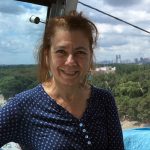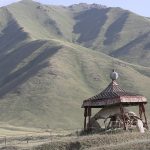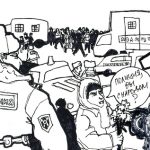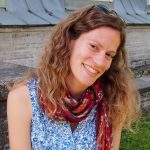Philosophy for Life: Ideas that Matter

Evgenia Cherkasova who is a professor and chair of Philosophy at Suffolk University (Boston) will give a talk entitled “Philosophy for Life: Ideas that Matter”. The oldest, most perplexing existential questions are as relevant today as they were in ancient times. What do we live for? Why do we suffer? Which beliefs, values, and experiences sustain meaningful, fulfilling existence? The speaker will discuss “Philosophy as a Way of Life”—an engaged, existentially-charged approach to the Big Questions. Diverse examples will be drawn from Western and Eastern philosophical and literary texts. ❖ Fri, April 5th, 2019 @ 4:30 pm - 6:00 pm | Hollander Hall, 241 Continue reading »





